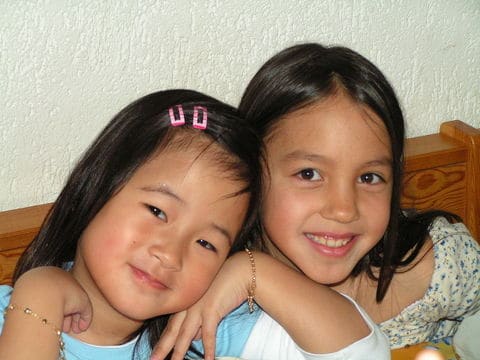Article and Photo contributed by Helen Garner
Eating disorders are much more prevalent than many parents would like to think. They affect some 70 million individuals worldwide, 90 per cent of which are women aged between 12 and 25. In addition to those who are formally diagnosed with having an eating disorders, many more youths display disordered eating attitudes and behaviour and sadly, this conundrum is affecting children aged as young as nine. Parents with a child with an eating disorder are faced with an immense dilemma: on the one hand, they cannot simply allow their child to continue on such a destructive path—anorexia has a strikingly high mortality rate (up to 20 per cent), making it the most deadly mental condition in modern society. The best chances of recovery are linked to early diagnosis and treatment, yet parents also need to be in tune to the importance of not exposing their child to high levels of stress and anxiety, since this can trigger episodes of binge eating/starvation, etc.
When it comes to recovery from eating disorders like anorexia nervosa, the ‘gold standard’ therapy is Maudsley Family Therapy, an approach which involves the whole family working together to overcome the disease. In this Method, parents are responsible for refeeding their child, though they receive the support of a mental health professional. There are three phases involved: the first focuses on weight restoration, the second involves giving the child greater control over the food they consume and the third focuses on long-term management strategies for the whole family, including working on psychological factors that may underpin the illness. Maudsley Therapy is also used to treat bulimia, a disease which can be uncannily difficult for parents to spot, since many times, those with this disease do not lose drastic amounts of weight, a tell-tale sign for the onset of anorexia. Some of the most useful advice given to parents undergoing this therapy (which is also applicable to parents opting for other therapies, including Cognitive Behavioural Therapy) include:
* Do all the research you need to on eating disorders: Over the years, the scientific community has become much savvier about the nature and consequences of eating disorders. One group of eating disorders, for instance, is known as EDNOS (Eating Disorders Not Otherwise Specified)—these disorders may share characteristics of anorexia, bulimia or binge eating disorder, yet they define such characterisation. Parents need to know the signs to watch out for in all types of eating disorders.
* Speak to your mental health professional about how many calories your child needs to regain weight: It is vital that affected children regain lost weight to ensure their physical and mental health. You would probably be surprised by how many calories someone with anorexia nervosa needs to gain. Make sure you know exactly how much your child needs to eat if you are in charge of preparing meals for your child while they are recovering.
* If your child wants to help you cook, ensure they are not using their time in the kitchen to control the type or amount of food being prepared.
* During mealtimes, do not focus on your child as they will feel over-observed.
* Don’t blame yourself: Parents are not to blame for their child’s eating disorder; there are many reasons why your child may have an eating disorder, including biological factors which are beyond your control.
* Be compassionate and patient and don’t let anxiety take hold of you, especially during the initial stages of recovery, when your child may resist eating what you ask them to. Be consistent yet kind and work together with your spouse and with your child’s siblings, ensuring you are all on the same page.
* If you disagree with your spouse about something, don’t do so in front of your child. This will add tension and make you seem less united on the issue of their recovery.
* Ensure the needs of your child’s siblings are being met. Brothers and sisters of those recovering from an eating disorder can feel fear, anger, anxiety and even depression. Make sure siblings aren’t distancing themselves from the person with an eating disorder, or taking on more responsibility than they can bear because they feel their parents are over-stressed. Family therapy is important, to ensure each child’s concerns are being addressed.
* Be a good role model by not dieting, talking about people’s physique, etc. Eat healthily and do sport; your child will notice the positive effects you are reaping. Give your child compliments that have nothing to do with their weight or their looks. Do not centre conversations around calorie counting, body shapes of other people, etc.
* Let your child know that your love for them is unconditional; be light of heart and try a dose of humour, even during tension-wrought moments. Laughter is a great way to bond and to instantly change the mood of a moment from negative into positive.
This article is contributed by Helen Garner. Helen is a writer who worked for a long time in the health care sector with children and families who had mental health problems. She took an interest in nutrition and healthy living and in particular was concerned with the increasing numbers of children who were suffering with eating issues. She’s now a stay at home mom and cares for her two children, taking on freelance writing work to supplement the family income.
Thank you Helen Garner for your article contribution!




